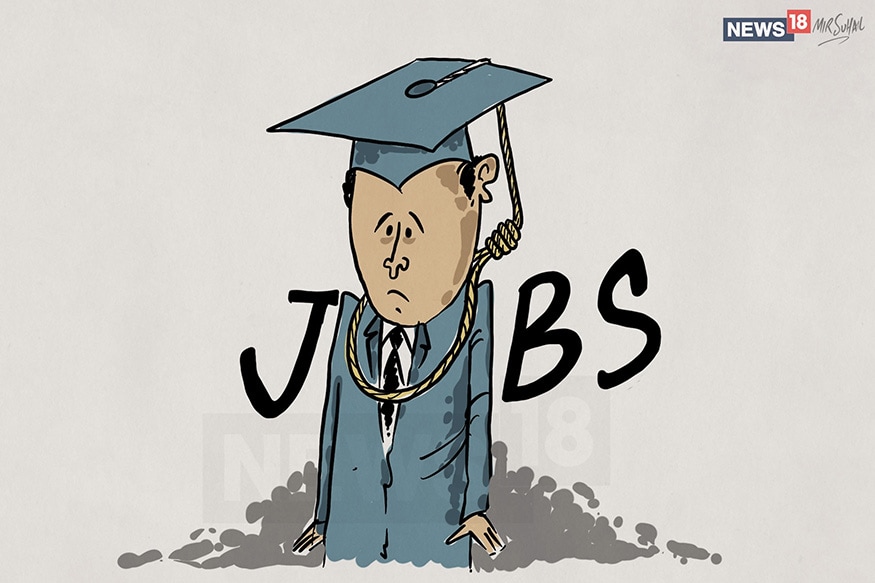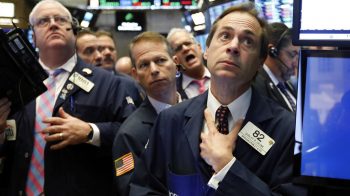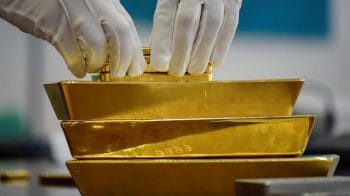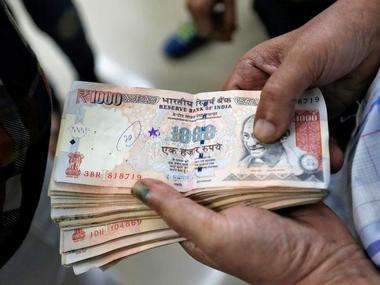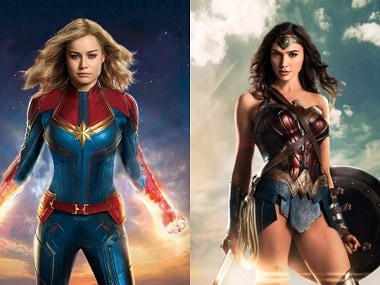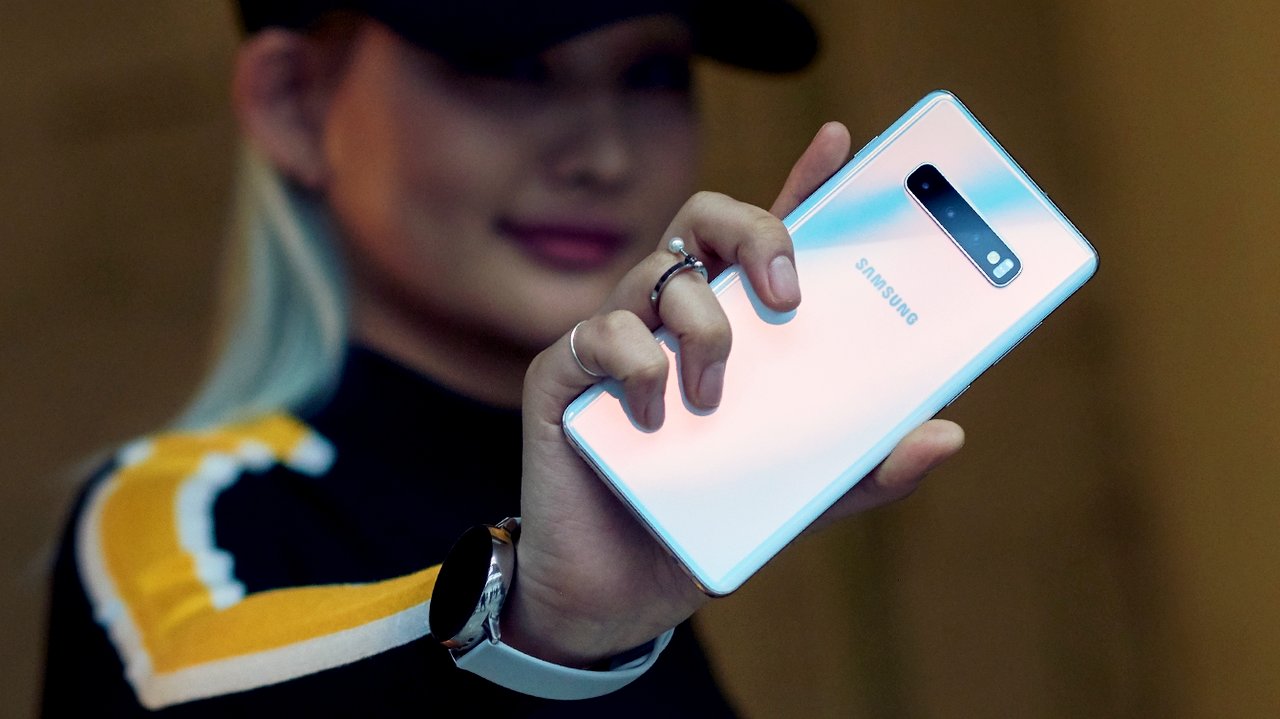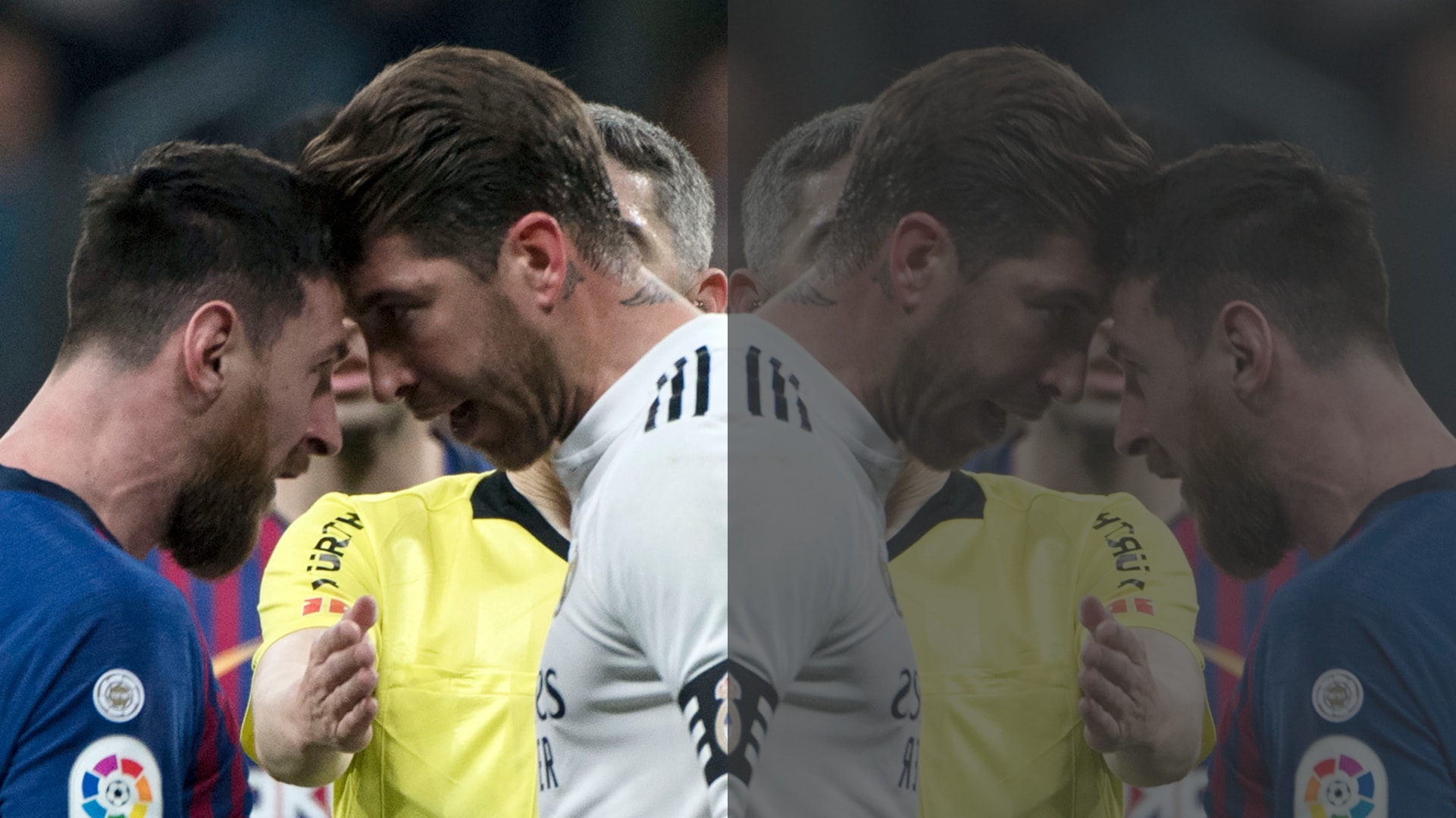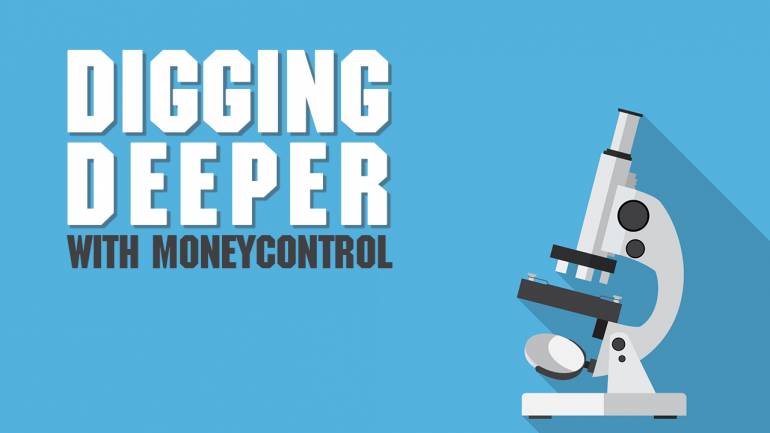Forbes named 21-year-old Kylie Jenner, the youngest billionaire ever.
Rakesh Sharma | Harish Puppala
The world is split into half: those that keep up with the Kardashians, and those that don't, but will eventually. Like that old adage, first we ignored them, then we ridiculed them, then we fought them, and then we all fell in line and bought whatever they had to plug, and said Okrrrrrr.
President Barack Obama namedropped Kendall Jenner at the White House Correspondents' Dinner. Bruce Jenner's transition to now Caitlyn Jenner is quite likely the world's most famous trans journey. Kim Kardashian's infamy from sex tape to blink-and-you'll-miss first marriage to break-the-internet photoshoots to being Mrs Kanye West to meeting with Donald Trump at the Oval Office has given us all pause, and made us wonder if we buswere in a Twilight Zone episode. And yet, here we are, in the bright noon of the Age of the Kardashian. They have figured out the magic recipe to morph the proverbial fifteen minutes of fame into relentless machinery whose sole purpose is eyeball-grabbing. Lady Gaga might have written about the Fame Monster, but the true heiresses of the Fame Monsterdom are the Kardashian/Jenner stepsisters. There is simply no two ways about it.
Philosophers have wondered why our zeitgeist has come to be dominated by them. Kim Kierkegaardashian is a Twitter account that seamlessly mashes up the mundane ruminations of Kim K. with the existentialist laments of Soren Kierkegaard. Academia seems to be obsessed with the sisters. Are the Kardashians feminists? Are they postfeminists? Or are they double agents for the patriarchy? Can you be a feminist and sell diet pills on your social media? If you pander to sexist constructs to make money and describe your choice to do so as one form of expressing your womanhood, are you still a feminist, and does pointing this apparent irony out make me a misogynist? It's a minefield. Masters and doctoral theses have been written about the phenomenon that is the sisters: "Keeping Up With the Kardashians and Jenners: An Analysis of the Postfeminist and Neoliberal Tendencies and Biopolitics in Contemporary Social Media Practices Through a Consideration of the Popular Culture Exemplar" is the title of an actual thesis submitted at the prestigious Trinity College, Dublin. Brunel University hosted an academic symposium - Kimposium! - about all things Kardashian - the event sold out. The marketing techniques of the sisters don't sound like your typical lines from a Madison Avenue agency; they sound informal, they sound like tips coming from your bff - only these bffs are sitting far away in posh Calabasas, California counting their several hundred millions. These illusions of intimacy are described as a stellar example of parasocial interaction, something the Kardashians have perfected into an art. Art that makes commercial sense, a lot of commercial sense.
Barbara Walters once famously said, to their faces, "You don't really act; you don't sing; you don't have any - forgive me - any talent."
Look how's having the last laugh? (Or cackle, more like)
The latest news from this group of sisterpreneurs managed by their "momager" Kris Jenner is a whopper: on March 5, Forbes named 21-year-old Kylie Jenner, the youngest of the lot, as the youngest billionaire ever. Let that sink in.
Jenner made it to the annual Forbes list of billionaires after debuting her Kylie Cosmetics online in 2015 with $29 lip kits containing matching lipstick and lip liner. Forbes said she was both the world's youngest billionaire and also the youngest self-made billionaire ever.
A Moneycontrol report noted that Forbes distinguishes between those who inherited much of their wealth and those who made their fortunes on their own. Kylie would be in 2,057th place whether she was self-made or inherited. Jenner took the title of youngest billionaire from Facebook co-founder Mark Zuckerberg, who became a billionaire in 2008 at age 23. Before him, Microsoft co-founder Bill Gates held it in 1987 at age 31. Gates remains at the No. 2 position with an estimated fortune of $96.5 billion while Zuckerberg dropped three places to No. 8 as his fortune fell by $8.7 billion to $62.3 billion. Gotta feel for the guy, no?
While we judged the reality TV stars for their degenerate lifestyles and mocked them incessantly, they have grown into millionaires and billionaires. Kim, the first of the Kardashians and Jenners who started down this route, has grown in net worth to around 350 million USD herself. But her little sister, 20 years her junior, has outshone her by some distance. An introduction to Kylie Jenner, the youngest of the sisters, and now the youngest of billionaires is our topic of discussion on this edition of Digging Deeper with Moneycontrol with me Rakesh Sharma.
Who is Kylie Jenner?
If you’re like the aam junta, you have only seen the name Kylie Jenner in gossip columns and ignored her like we do most second and third rung celebrities. Yes, she’s A-list now on account of Forbes’ proclamations, but she wasn’t until a couple of years ago.
Kylie Jenner became famous thanks to the wildly popular American reality show Keeping Up With the Kardashians, which features her family, specifically focusing on the more popular Kim Kardashian and her immediate family’s antics.
Bear with me, this is important, not the least because the Kardashian/Jenner revenue model could soon be a case study. Vox explains: “Kylie’s financial success, as well as that of her siblings, is largely the result of one woman’s hard work: Kris Jenner, the matriarch of the Kardashian-Jenner family, who also happens to manage all her children’s careers. If there’s one thing Kris knows how to do, it’s put her kids to work — especially in ways that, more often than not, don’t look like real work at all. Kris was the one who pitched Keeping Up With the Kardashians, which premiered in 2007, to Ryan Seacrest. (Kim’s sex tape with Ray J, which leaked a year earlier, was both an “aha” moment for Kris and a plot point on the show’s first season. “When I first heard about Kim’s tape, as her mother, I wanted to kill her,” Kris said in a confessional. “But as her manager, I knew that I had a job to do.”)” That’s some cold blooded business acumen, one could surmise. The Vox article goes on: “Perhaps without meaning to — though, to be clear, everything Kris Jenner does is intentional — she secured her family’s place in the zeitgeist and laid the foundation for Kylie’s eventual fortune. Kylie wasn’t really relevant in the show’s earliest seasons; she and (her sister) Kendall were mostly there for comic relief and the occasional feel-good plot line about volunteering. But as Kendall and Kylie entered their late teens, Kris began securing sponsorship and licensing deals for her two youngest children. The two Jenner sisters launched lines at PacSun, Steve Madden, Topshop, and Sugar Factory, a candy company. Kylie later launched a solo hair extensions line with Bellami Hair. The real money, though, came later.” Kylie, who was part of this reality circus, soon got her own spinoff miniseries Life of Kylie.
Essentially, a Paris Hilton sidekick displaced her as the enfant terrible du jour sometime in the first decade of the 2000s, then got her own reality show on TV that allowed couch potatoes unhindered access to her family. People became invested in the show and, boom, they all have fortunes, product lines and massive social media followings. And Kylie’s fortunes shot higher than all the others on the TV show.
The Power of Social Media
Kylie Jenner started Kylie Lip Kits in November 2015. As one report noted, “The product choice was not incidental, as the internet had spent much of the previous two years speculating on the teen's noticeably larger lips.”
CNBC reports that Jenner's inspiration for her makeup brand came from her obsession with YouTube tutorials as a tween. She said, “I turned to makeup to help me feel more confident.” At 17, two years before it officially launched, Jenner trademarked Kylie Lip Kit. Initially, the reality TV star claimed the change was achieved using clever makeup tricks. The BBC recalls, “Some mocked and sparked a viral, and painful, challenge to plump their own lips, but beauty bloggers avidly recreated her look. The products she was rumoured to use sold out at MAC outlets across the world. Kylie and...(her mother) Kris (Jenner) saw an opportunity to go it alone. She spent months trailing an initial three-shade launch of lip kits - a combination of nude lip liner and matte lip cream combos - on Instagram and Snapchat. The initial stock launch sold out in less than a minute, crashing the website.”
Bloggers offered suggestions of dupe options for followers who were not lucky enough to grab their own. Soon, the $29 dollar sets were being bootlegged online for hundreds of dollars.
A News18.com article recalls that the “#KylieJennerChallenge blew up on Instagram and Twitter, where people wanted to make their lips resemble her pout. A vast majority of her social media followers are young and female, which also happens to be the brand's market.”
She changed the company’s name to Kylie Cosmetics and earned a reported $19m in one day in late 2016.
Her success can be viewed squarely within larger trends in the global beauty industry, which has undergone a huge shift as social media influencers and vloggers become more important to a brand's success. In an era of Beauty vloggers and influencers, Kylie’s popularity grew rapidly while she marketed most of her products on Snapchat and Instagram, also the while cashing in on the fame of the Kardashians. She plugs videos of forthcoming products and announces new launches. She is her company’s CEO and chief marketing officer rolled into one while her mother Kris is the chief financial officer. As the News18 analysis put it, “The playing field with blanket corporations got levelled and as Kylie envisioned a new marketing strategy, she herself became the face of it, providing the brand with legitimacy in which other products often lag behind. It's mockingly funny as Kylie's company (reportedly) has less than 15 employees, and since there are no major marketing costs, the profits go directly to her.” We know what that means - almost no overheads and crazy profits if you’ve got a good thing going. According to the BBC, in just a couple of years she amassed a reported $630m in sales, diversifying from lip kit duos to other products such as glosses, highlighters and eye-shadows.
Kylie Jenner’s social media heft is a thing of wonder, and the basis of her quick and unexpected spurt in wealth. She is something of a benchmark as far as social media influence goes. The BBC wrote in July 2018, “Kylie is a social media powerhouse. When she tweeted that she was "sooo over" Snapchat earlier this year, its shares tumbled.” She has 128 million followers on Instagram and 26.7 million followers on Twitter - mostly young and female, they fit perfectly within her brand's target group. “It’s the power of social media,” Jenner told Forbes, adding, “I had such a strong reach before I was able to start anything.” The Economic Times reported that according to Hopper HQ, a social media scheduler, each of Jenner’s Instagram posts is worth about $1 million. Her posts include family photos and mirror selfies, in addition to new product announcements or promotions for blush, lip gloss and eye shadow. Conor Begley, co-founder of brand-marketing company Tribe Dynamics said, “The business would not exist at its current size without social media...“She’s a unique case in that she has a massive, massive audience. That can be replicated for sure.”
Vox described Kylie’s journey to success thus: she “founded a company with...money she made thanks to her branding genius of a mother...which is why Forbes sees it appropriate to deem her a “self-made” billionaire — and, as Forbes put it, now reaps her company’s “outsize profits.”
Why Is Kylie So Successful?
Quartz.com put forward one theory why Kylie Jenner, and the rest of the Kardashian/Jenner clan, is so outrageously successful. It wrote “At the end of the 19th century, American economist and sociologist Thorstein Veblen said that people take their cues about what to consume from the social class immediately above their own. They want things just beyond their reach...researchers Emily Hund and Lee McGuigan at the University of Pennsylvania investigate the mechanics of “a shoppable life.” The term describes the contemporary phenomenon of influencers marketing their lifestyles, then selling aspects of it, like the beauty products they use or elements of their home’s decor, through nearly seamless technological infrastructure, and the finding that more and more commercial opportunities rise with the way people present themselves and interact with each other.”
Veblen wrote in his 1899 book Theory of the Leisure Class that the “ideal of consumption” for most people is what they can’t acquire, or which, at best, could be acquired only through considerate effort. “The motive is emulation—the stimulus of an invidious comparison which prompts us to outdo those with whom we are in the habit of classing ourselves,” he wrote. In fact, it would not be too much of a stretch to say that Veblen’s conjecture perhaps explains the whole point of Instagram, and indeed all of social media. Quartz put it succinctly: “Influencers make their posts a seamless way to acquire their highly-curated lifestyles. Affiliate link platforms ...allow...users to buy items straight from the influencer’s photo, eliminat(ing) barriers to buying their lifestyle—and (they) make heaps of money in the process.” This theory is relevant because, as Kayleen Schaefer wrote in Vanity Fair in 2016, Kylie’s lips became “something akin to the Gen Z equivalent of Tina Turner’s legs or Jennifer Lopez’s backside.” Jenner was named one of Time Magazine's most influential teens of 2016. In 2017, she was the youngest celebrity on the Forbes 100 - a list of the 100 top-paid celebrities in the world, having earned $41 million the year before.
Forbes recounts that in November last year, Kylie Jenner marked a milestone moment with a visit to a mall. For the past three years, her company Kylie Cosmetics had only sold its makeup online and briefly in pop-up shops. However, after signing a distribution deal with Ulta Beauty, a beauty retailer, Kylie Cosmetics offered its $29 lip kits—a matte liquid lipstick and matching lip in Ulta’s 1,000-plus stores. Jenner made an appearance at an Ulta store in Houston to “greet customers, sign autographs on lip kits and, of course, pose for selfies with her fans,” according to Forbes. Six weeks later, Forbes claims, Kylie Cosmetics had sold $54.5 million worth of products in Ulta, as per estimates from Oppenheimer. Kylie said, “I popped up at a few stores, I did my usual social media—I did what I usually do, and it just worked.”
Ulta Beauty’s expansion helped Kylie Cosmetics’ revenue rise 9% last year to approximately $360 million. Given that growth trajectory, and using a conservative multiple from the booming makeup industry, Forbes estimated Jenner’s company’s worth at around $900 million, if not more. Jenner owns all of it. Adding the cash she has already pulled from the profitable business means Jenner has an estimated fortune of $1 billion, according to Forbes’ calculations.
Meanwhile, Ulta Beauty gets a brand that requires no marketing push. The retailer hasn't spent a dime on traditional marketing to launch the brand in stores. In 2018, Forbes included Jenner on its list of America's Richest Self-Made Women.
Maybe She's Born With It?
Many people refuse to buy the “self-made billionaire” tag. They claim Kylie got a leg up because of her family and privileged circumstances. Bybreen Samuels, author of the business book Non-Profit Booster - 10 Steps to Building a Successful Organisation, told the BBC "describing Kylie Jenner as a 'self-made billionaire' is a misnomer" because "at no time has she faced true entrepreneurial challenges". She added, “(Jenner) gained leverage by using her family name, fame and wealth. Consequently, she had direct access to the whole range of privileges, connections and resources that flow from these factors. Her ascendancy into global wealth and brand recognition was already guaranteed before she even started.”
Forbes clarified that it uses the term to describe those billionaires who didn’t inherit their fortunes, but instead built them. It said, “But the term is very broad, and does not adequately reflect how far some people have come and, relatively speaking, how much easier others have had it.” Vox claims Kylie Jenner would not be a billionaire without Keeping Up With the Kardashians, or her mother’s branding prowess. However, self-made or not, Kylie Jenner is a billionaire. And, according to Vox, “...she’s also living proof that wealth begets even greater wealth.” Well, Vox seems unimpressed with the self-made tag.
Kylie's success and huge profits haven't been lost on Kim Kardashian, who launched a new beauty line of her own and a range of new fragrances. Following a social-media-heavy marketing campaign that involved sending elaborately packaged perfumes to celebrities and influencers, Kim's initial product offering sold out, raking in $10m before a single paying customer had even smelt the fragrance. Stephanie Saltzman, beauty editor at Fashionista, said, “I think that was definitely a wake-up call for a lot of others in the industry, and the same can be said with Kylie and everything she has accomplished...I think they feel threatened and also feel inspired. I interviewed Kim right after that fragrance launch and she was saying some big corporations had come to her for advice.”
After turning the debacle of a sex tape into a full-fledged entertainment career, even in the beauty industry it seems that the Kardashians might actually be the ones to keep up with. As Kylie said on her show Life Of Kylie, “I really do feel like people don't take me seriously as a business woman because of my age and my reputation...But I feel like they're starting to. I like to prove people wrong." And she has made some great moves in the recent past. As Forbes said in their piece, “She is, after all, the first selfie-made billionaire.”


























